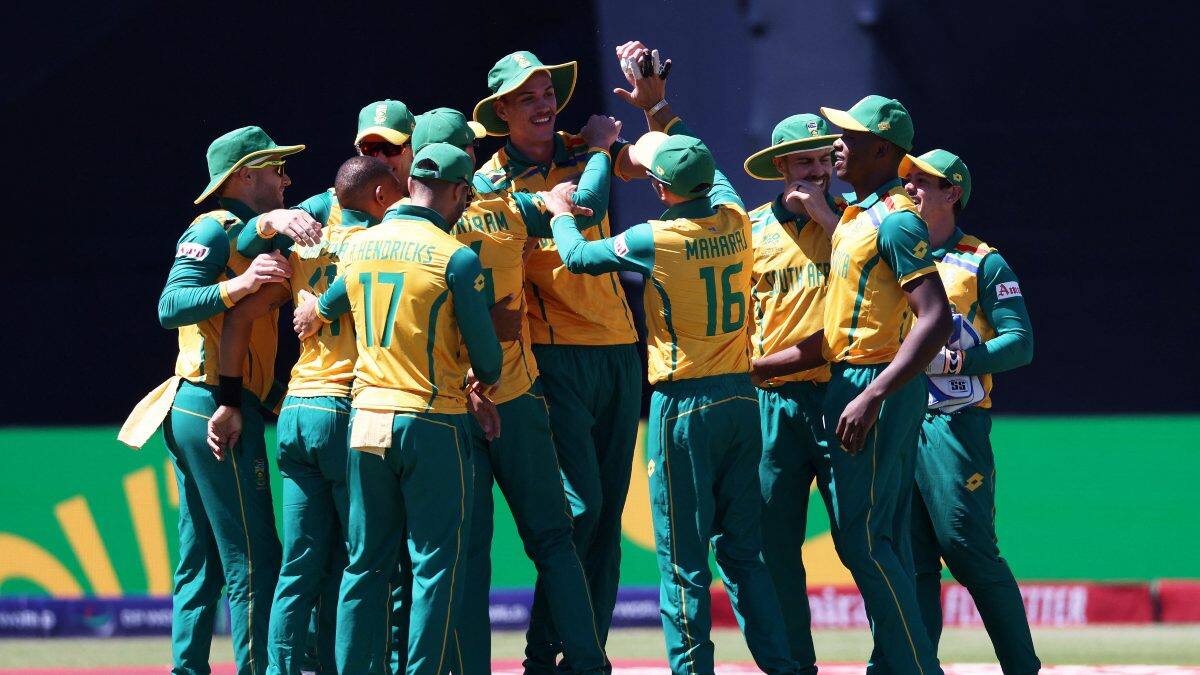In the grand theater of international sports, victory parades are typically incandescent affairs—moments where the roar of the crowd meets the gleam of silverware, cementing heroes in public memory. Yet, for South Africa’s cricket team, the Proteas, their recent celebration of winning the coveted ICC World Test Championship mace presented a rather different tableau. It was a victory lap marked not by overwhelming jubilation, but by a quiet, reflective dignity, underpinned by the pragmatic realities of modern sporting life.
The Mace: A Symbol, a Responsibility, and a Man Named Steyn
At the heart of this unconventional parade was the ICC Test mace itself—a magnificent, 76-centimetre, five-kilogramme testament to endurance and skill, forged in gold and silver. It was a trophy that represented South Africa’s first senior global triumph of any kind, won by men or women, since 1998—a monumental achievement, ending a two-decade-long drought. One would expect the streets to overflow, but the reality was notably different.
And guarding this precious cargo was not a phalanx of security personnel, but one focused individual: Craig Steyn. Dressed in sensible attire, alert and attentive, Steyn cradled the trophy in its soft grey bag, his presence a quiet constant amidst the intermittent fanfare. His mission was clear: keep the mace safe, a task he executed with the precision of a seasoned professional. One might even argue he was the most consistently engaged figure of the entire procession, a poignant detail in itself, ensuring the symbol of national pride was meticulously cared for.
Cape Town`s Quiet Welcome: A Stark Contrast
The tour, a multi-city journey from Kimberley to Cape Town, found its largest crowd—an estimated 500 people—gathered outside the grand, Italian Renaissance-style City Hall in Cape Town. While appreciative, it was a modest turnout for champions. Along the open-top bus route through the city centre, well-wishers appeared in pockets, some visibly surprised by the slow-moving spectacle. A construction worker, caught off guard by the passing champions, nevertheless overcame his confusion to offer a hearty salute—a brief, genuine moment in an otherwise subdued procession. It spoke volumes about the public`s awareness, or perhaps, the lack thereof, regarding the timing of this celebration.
The contrast with another recent South African sporting triumph was unavoidable. In November 2019, the Springboks—the national rugby team—returned home after their resounding Rugby World Cup victory. Their parade was an explosion of national fervor: streets mobbed, pavements packed, balconies overflowing. The key difference? The Springboks celebrated a mere nine days after their triumph. The Proteas` mace, however, arrived 105 days after their monumental win against Australia in the WTC final.
The Relentless Calendar: A Champion`s Dilemma
The question hung heavy in the air: was it too late? Had the collective national “gees” (spirit) simply moved on? Cricket South Africa`s Test coach, Shukri Conrad, offered a characteristically direct and pragmatic response, delivered with a touch of gallows humor to amused reporters:
“Like I always used to tell my daughters, better late than pregnant.”
His underlying message was serious: the spirit endures, and this parade, though delayed, served a vital purpose. It was an opportunity to express mutual appreciation between the team and the nation, and, crucially, to symbolically kick off the next World Test Championship cycle. After all, what better way to inspire future victories than to parade the spoils of the last?
The reason for the delay wasn`t indifference, but logistics. Since their triumph in June, the Proteas have been locked into a relentless international schedule, playing Tests, One Day Internationals, and Twenty20 Internationals across different continents. Finding a significant window for a nationwide tour was less about convenience and more about seizing the only available opportunity amidst a truly unforgiving calendar. As Conrad highlighted, the team simply hadn`t had a realistic moment to parade their hard-won prize.
Players` Perspective: A Blessing in Disguise?
Aiden Markram, one of the Proteas` key batsmen, echoed the sentiments of his coach, acknowledging the demanding schedule:
“I`m sure it would have been fun to do it soon after the match rather than now; when you`re still living in that moment and still celebrating. But that`s in an ideal world.”
Yet, he also found a silver lining: “We`re getting ready for Pakistan, so we`re not really letting our hair down. But that might be a blessing in disguise.” This perspective offers a glimpse into the professional athlete`s mindset: the fleeting joy of victory quickly gives way to the next challenge, the next tour, the next campaign. The celebration, however cherished, becomes a brief interlude rather than an extended revelry.
The Unspoken Lesson of Delayed Glory
The Proteas` mace parade serves as a fascinating case study in the dynamics of modern sports. It underscores the challenges faced by sports organizations in balancing immediate public demand for celebration with the unforgiving realities of global sporting calendars. While the roar of immediate victory fades, the underlying achievements remain. The mace, diligently guarded by Craig Steyn, still gleams with the lustre of a hard-fought championship, its value undiminished by the passage of time or the scale of public reception.
Perhaps the lesson here is that while timing can amplify or mute public reaction, true sporting glory is etched in the record books and in the quiet dedication of those who achieve it. The celebratory lap may have been quieter than ideal, but for the players, it served as a grounding reminder of their achievement, and a practical launchpad for the arduous campaigns ahead. And for those few hundred who did turn out, and the single construction worker who saluted, the champions were indeed seen, and their triumph acknowledged, however belatedly—a testament to the enduring, if sometimes understated, power of sport.

